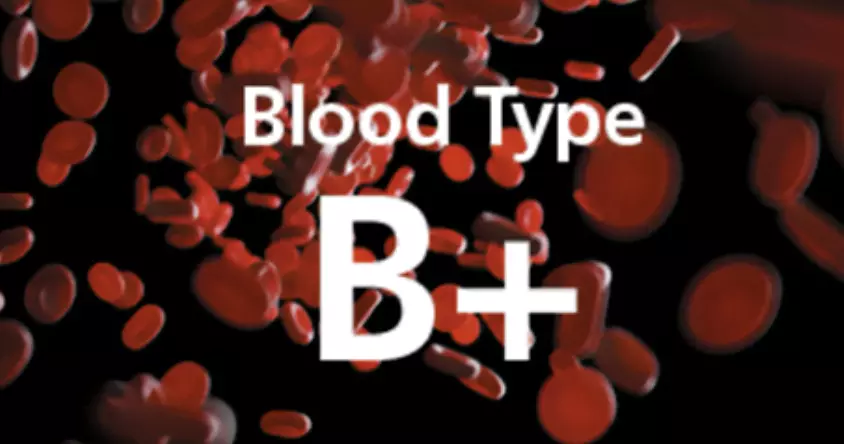B+ blood type: Unique traits, personality characteristics you need to know
B+ blood type: Unique traits, personality characteristics you need to know

In medical science, blood group is an essential subject, and understanding it is crucial in various treatments as it is connected to the life and death of a patient. Blood groups are determined based on different types of antigens and antibodies that may be present or absent in red blood cells. The antigens are present on the surface of blood cells, and antibodies are found in the plasma. Depending on the antigen and antibody, human blood can be classified into four groups: A, B, AB, and O. Here's a breakdown of each:
Group A: Red blood cells contain A antigen and plasma contains anti-B antibody.
Group B: Red blood cells contain B antigen and plasma contains anti-A antibodies.
Group AB: Red blood cells contain both A and B antigens, but plasma does not contain any anti-A or anti-B antibodies.
Group O: Red blood cells do not contain A or B antigens but plasma contains both anti-A and anti-B antibodies.
Additionally, there is another factor called the rhesus factor (Rh), which is a type of protein inherited from the parents. If this protein is detected in the blood, the blood group is positive; if not, the blood group is negative. Therefore, each of the above blood groups can be either positive or negative, resulting in a total of eight types of blood groups commonly found in humans.
Understanding B Positive Blood Group
B positive (B+) blood group has B antigen on the surface of red blood cells and anti-A antibodies in the plasma. The presence of the Rh factor makes it positive. When transfusing blood, compatibility between donor and recipient is crucial to prevent adverse reactions. For B+ individuals, compatible blood groups for transfusion include B+, B-, O+, and O-.
Advantages of B Positive Blood Group
Availability: B+ is a relatively common blood group, present in about 8.5% of people. This means that B+ blood is often readily available for transfusions during emergencies. Additionally, individuals with B+ blood can accept B- blood, increasing the chances of finding a suitable donor.
Acceptability: A B+ individual has the B antigen and Rh factor, allowing them to receive blood from B+, B-, O+, and O- donors. This wide range of compatibility makes it easier to find matching blood for transfusions.
Immunity: People with B+ blood are believed to have a strong immune system and stable nervous system. They are thought to be more resistant to digestive system diseases and adapt well to dietary changes. Healthy individuals with B+ blood may have fewer risks of certain diseases compared to other blood types.
Personality Traits: There are some findings suggesting that people with B+ blood type tend to be good listeners, reflective, and interpretative. They are often seen as flexible, creative, idealistic, subjective, and people-oriented.
Disadvantages of B Positive Blood Group
Transfusion Limitations: While B+ individuals can receive from multiple blood types, they cannot receive blood from groups with anti-B antibodies, such as A+ or AB+.
Rarity in Some Populations: Although B+ is common overall, its prevalence varies by region and ethnicity, which can sometimes make finding compatible blood challenging in certain areas.
B+ blood type has several advantages, including good availability and a broad range of compatibility for transfusions, as well as potential health and personality benefits. However, there are also limitations regarding blood transfusions and regional availability. Understanding these characteristics is essential for effective medical treatment and blood donation processes.

